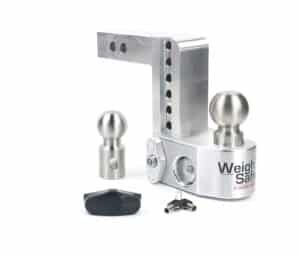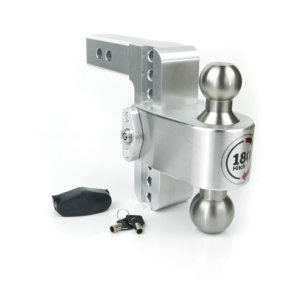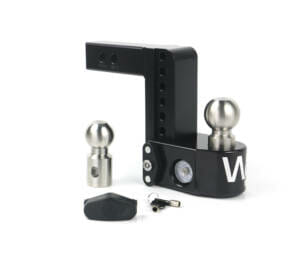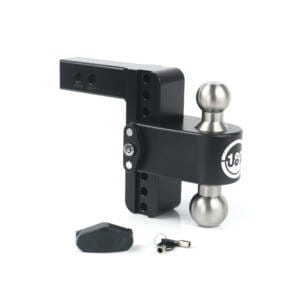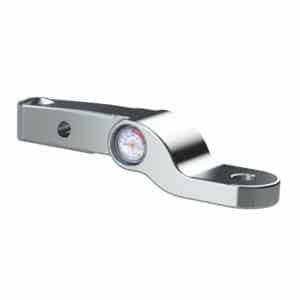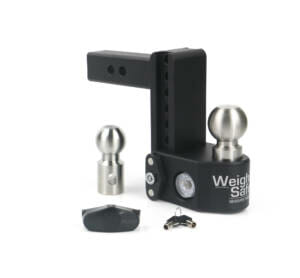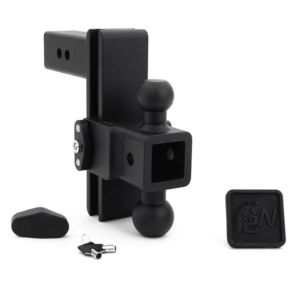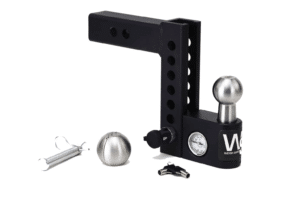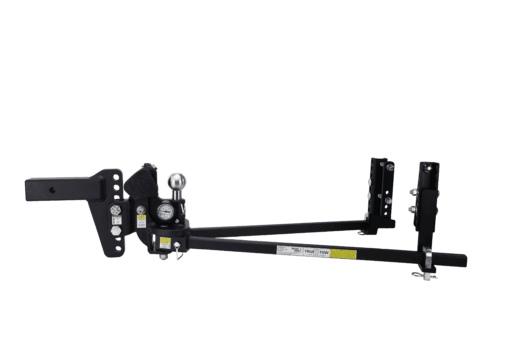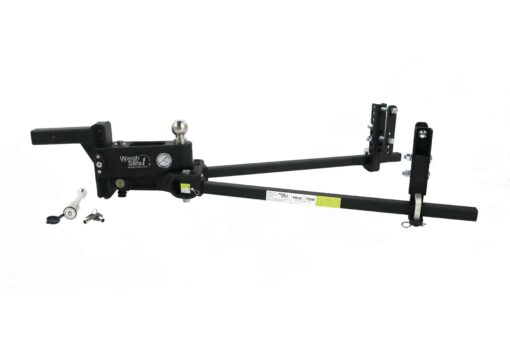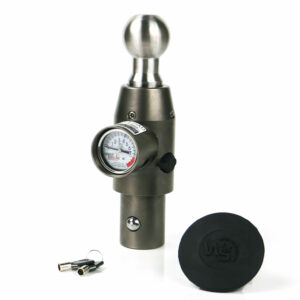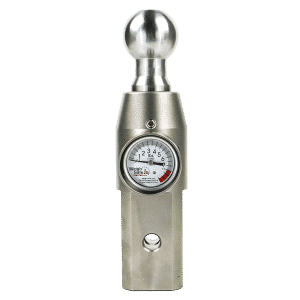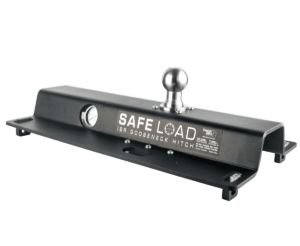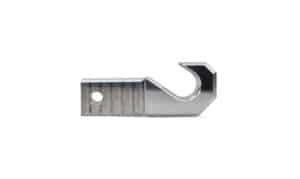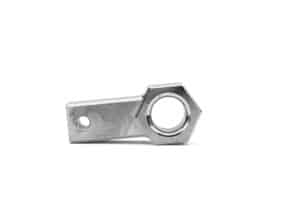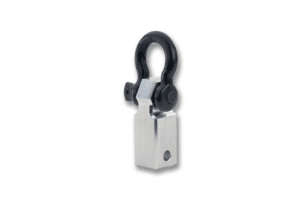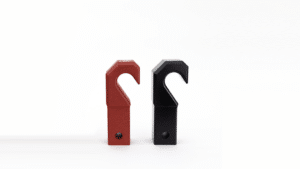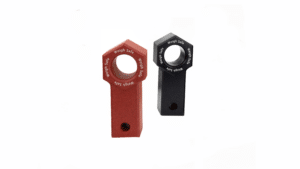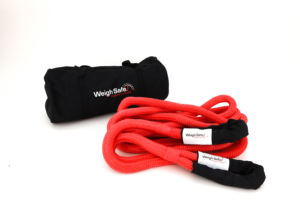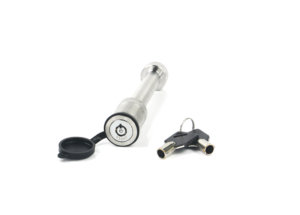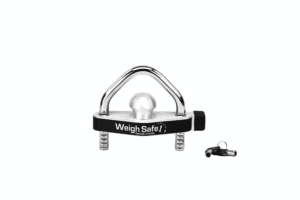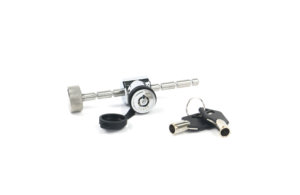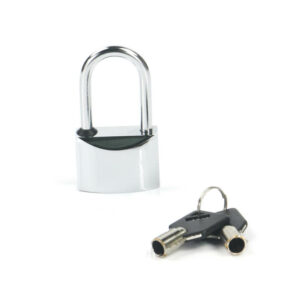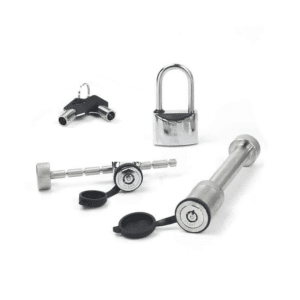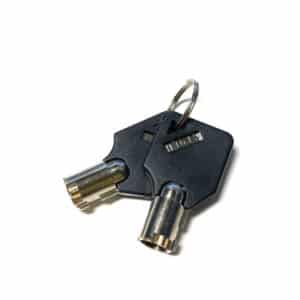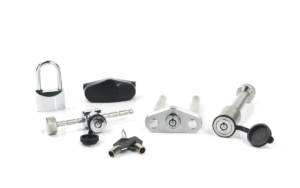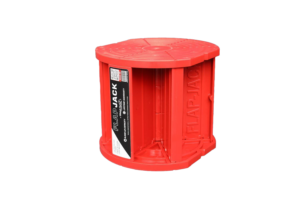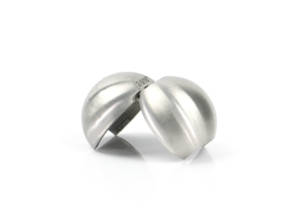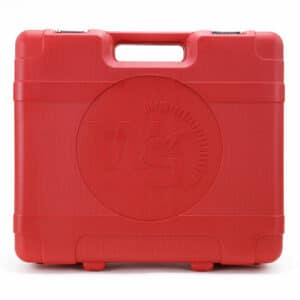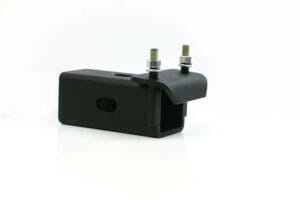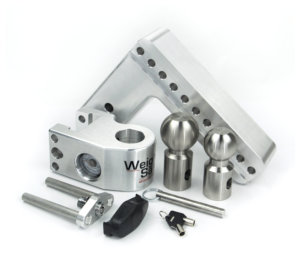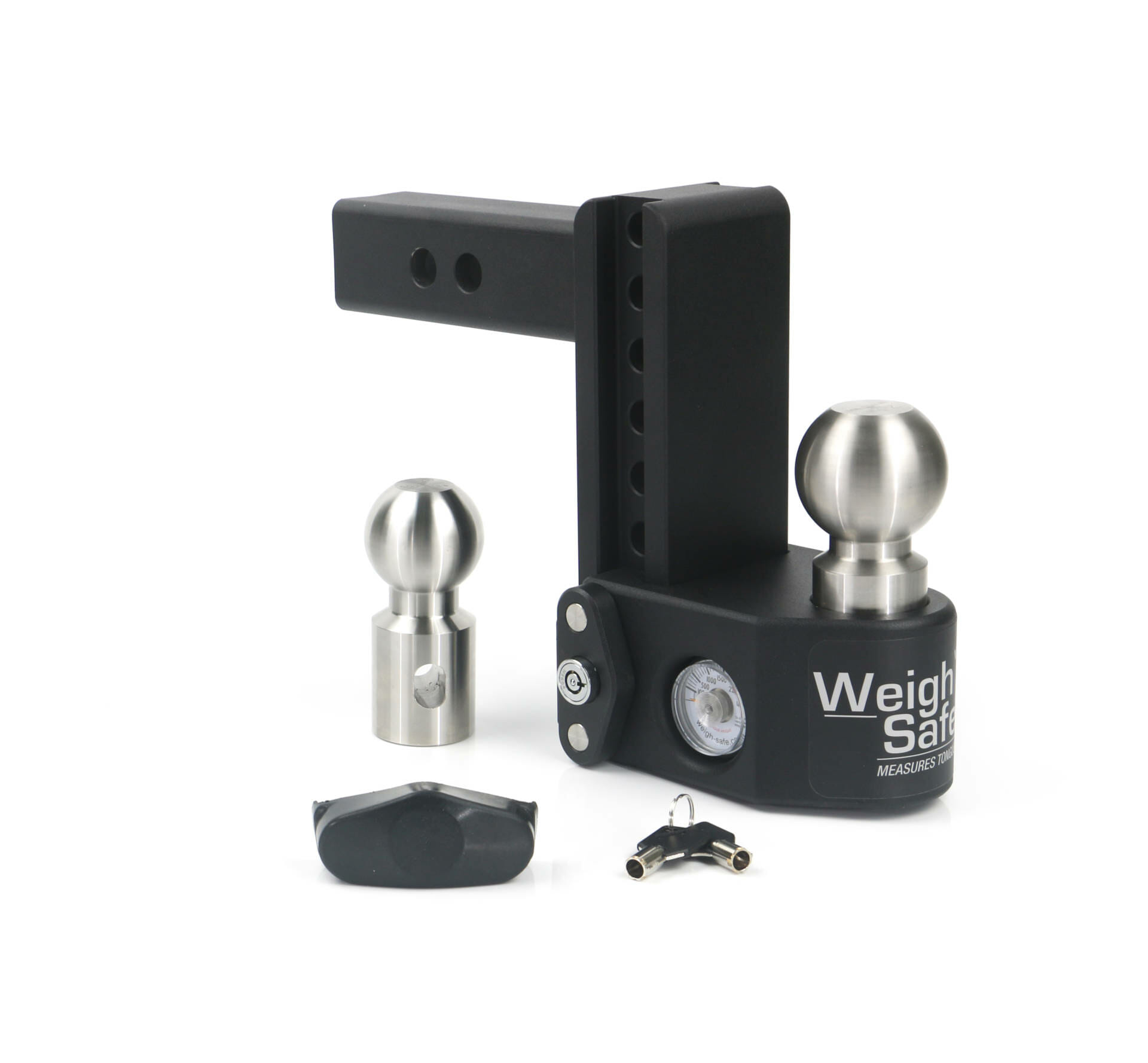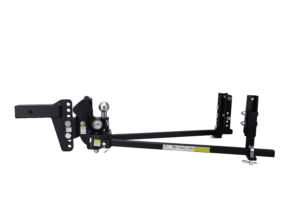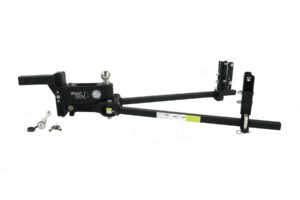Towing Safety
5 Of The Most Common Towing Mistakes
Spring is upon us (although Utah still thinks it’s winter some days) which means it’s time to break out those recreational vehicles! Whether it’s to go camping, off-roading, boating, moving your kids home from college, or even taking items to the dump after spring cleaning, this is the prime time to tow. The weather is pretty close to perfect in most places and it’s only going to get better as we get closer to summer, so what better way to social distance than to take the family out on an adventure? But before you go, don’t some of the most common towing mistakes in the process.
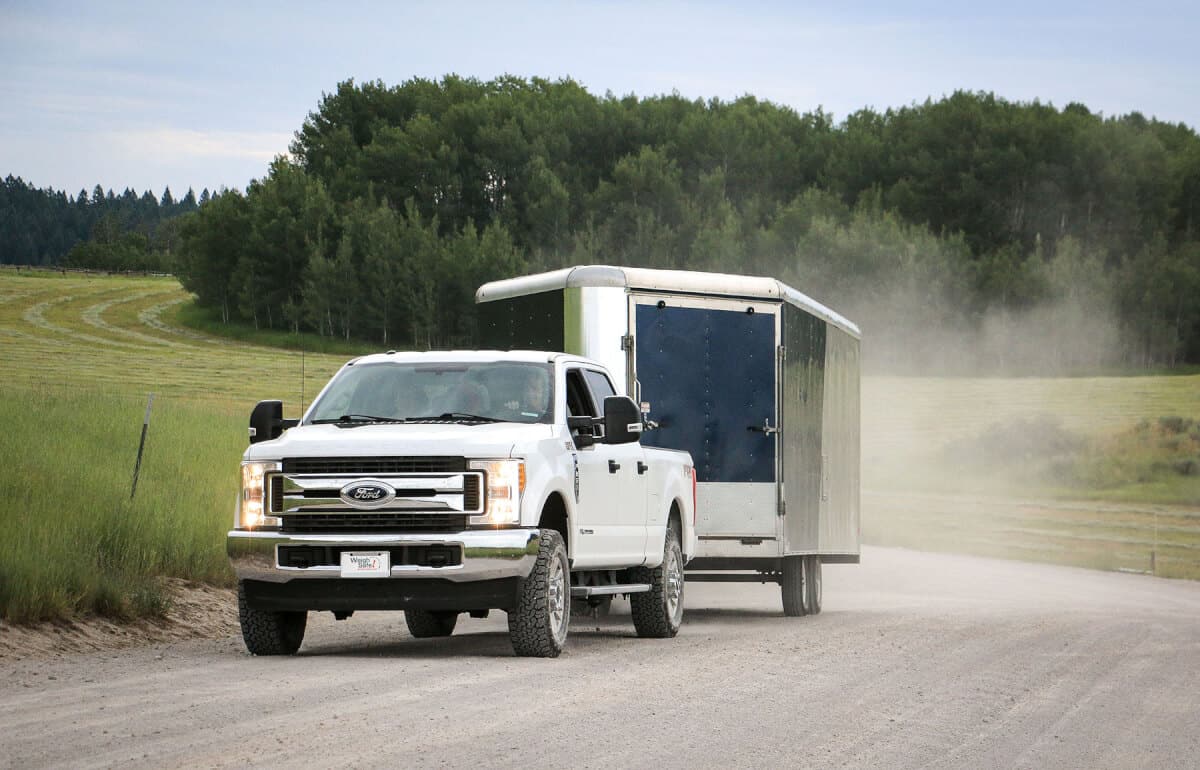 With all that being said, many people are a bit rusty on their safe towing skills and neglect to check certain things that are vital to a safe tow. I wanted to gather some accident statistics that involve trailers but have found that that type of information is very difficult to come by and not well recorded, especially ones that are up to date.
One of the more recent stats that I found from the NHTSA reported that in 2016 nearly 50,000 trailer hitch accidents happen every year in the United States and since we are now in 2020, I’m sure that number has only risen. Here are some safety checklist items that people tend to neglect and therefore add to that trailer hitch accident statistic.
With all that being said, many people are a bit rusty on their safe towing skills and neglect to check certain things that are vital to a safe tow. I wanted to gather some accident statistics that involve trailers but have found that that type of information is very difficult to come by and not well recorded, especially ones that are up to date.
One of the more recent stats that I found from the NHTSA reported that in 2016 nearly 50,000 trailer hitch accidents happen every year in the United States and since we are now in 2020, I’m sure that number has only risen. Here are some safety checklist items that people tend to neglect and therefore add to that trailer hitch accident statistic.
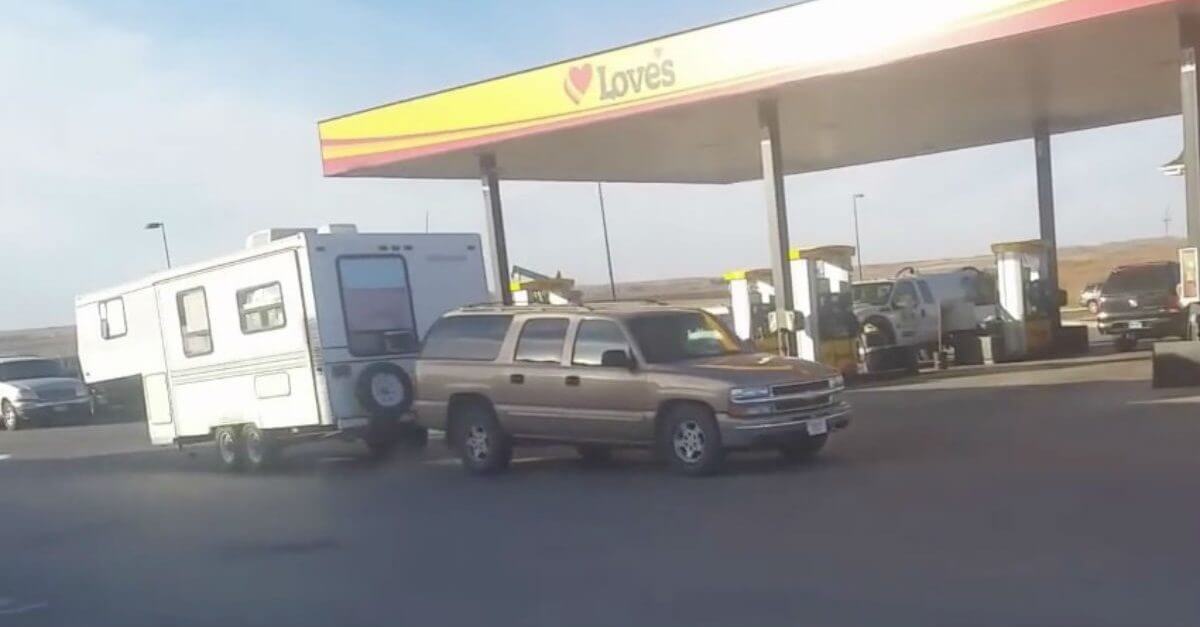 You should only tow your trailer in the intended manner that it was designed and manufactured for use. If it is a fifth wheel trailer, you should in no way try to convert it into a bumper tow trailer like the image above!!
Not only should you have the correct type of hitch, but you should make sure that it works for your tow vehicle. If you have a very large and lifted truck, you shouldn’t be towing with a standard hitch that makes the tongue of your trailer point up to the sky. You need a drop hitch that when attached, your trailer sits level. But you also don’t want too long of a drop hitch that if you have a vehicle that sits lower to the ground it’s going to scrape on the road or scrape going over speed bumps and whatnot.
You also need to make sure you have a hitch that matches the same size of receiver on your truck or that it has the appropriate reducer sleeves to get that appropriate and snug fit. For example, you do not want to use a 2” shank on a hitch in a 2.5” receiver with no reducer sleeve. This would NOT be safe and would have your trailer going all over the place! Overall, you need to find a hitch that will work specifically for your tow vehicle.
#2- CORRECT HITCH BALL SIZE: Once you have found the correct hitch for your tow vehicle and trailer, you have to make sure that you have the correct sized tow ball on your hitch. Just because your trailer coupler fits on your tow ball does NOT mean they are the same size and compatible. If the tow ball is smaller than the coupler, you will not be able to properly secure the coupler and the same goes for a tow ball that is larger than your coupler. Either way, the trailer could detach from your truck and cause an accident.
You should only tow your trailer in the intended manner that it was designed and manufactured for use. If it is a fifth wheel trailer, you should in no way try to convert it into a bumper tow trailer like the image above!!
Not only should you have the correct type of hitch, but you should make sure that it works for your tow vehicle. If you have a very large and lifted truck, you shouldn’t be towing with a standard hitch that makes the tongue of your trailer point up to the sky. You need a drop hitch that when attached, your trailer sits level. But you also don’t want too long of a drop hitch that if you have a vehicle that sits lower to the ground it’s going to scrape on the road or scrape going over speed bumps and whatnot.
You also need to make sure you have a hitch that matches the same size of receiver on your truck or that it has the appropriate reducer sleeves to get that appropriate and snug fit. For example, you do not want to use a 2” shank on a hitch in a 2.5” receiver with no reducer sleeve. This would NOT be safe and would have your trailer going all over the place! Overall, you need to find a hitch that will work specifically for your tow vehicle.
#2- CORRECT HITCH BALL SIZE: Once you have found the correct hitch for your tow vehicle and trailer, you have to make sure that you have the correct sized tow ball on your hitch. Just because your trailer coupler fits on your tow ball does NOT mean they are the same size and compatible. If the tow ball is smaller than the coupler, you will not be able to properly secure the coupler and the same goes for a tow ball that is larger than your coupler. Either way, the trailer could detach from your truck and cause an accident.
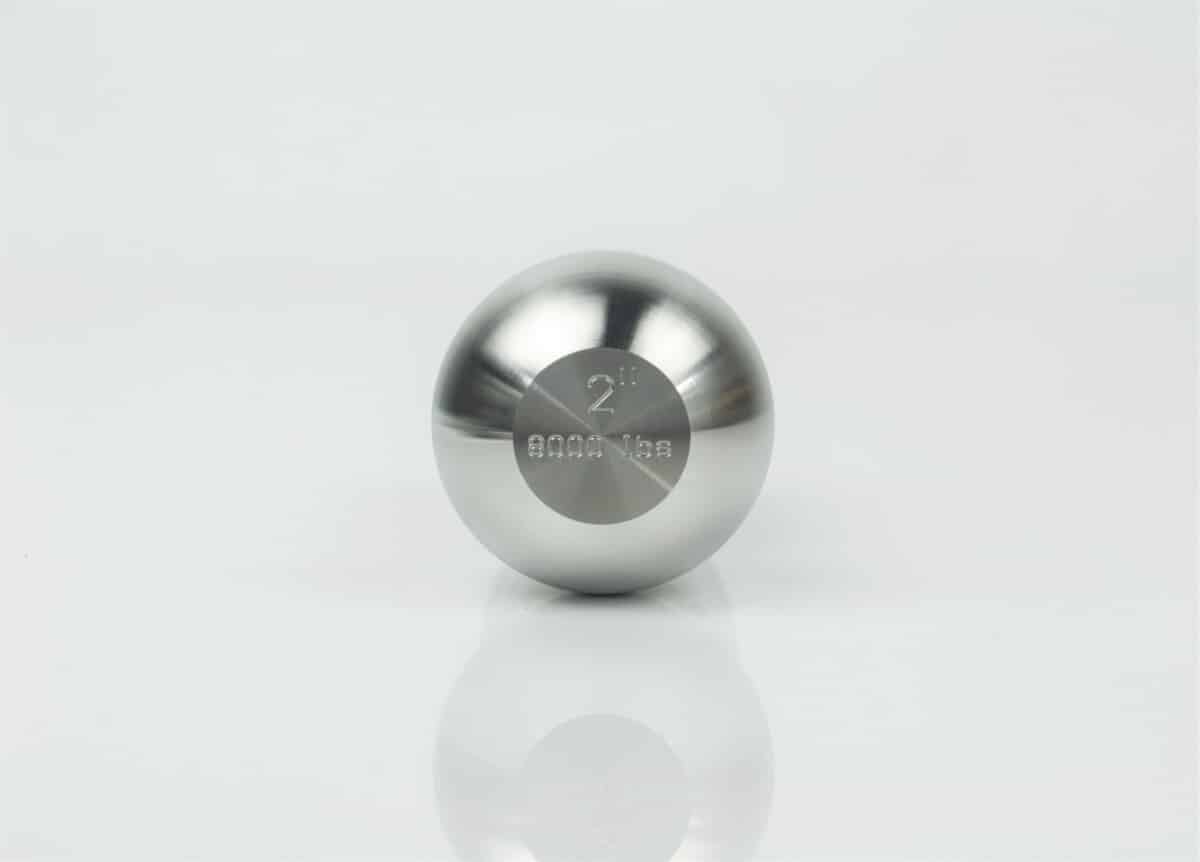 #3- PROPER HITCH ATTACHMENT: Once you have the correct hitch and tow ball, you need to properly and securely attach the trailer to the truck. Check and double check that the trailer coupler is locked/secured and won’t be coming off during travel. Hook up your trailer lights, safety chains, trailer brakes and breakaway cable and double check that all are functioning and secured in place. See more information about a proper hitch attachment here.
#3- PROPER HITCH ATTACHMENT: Once you have the correct hitch and tow ball, you need to properly and securely attach the trailer to the truck. Check and double check that the trailer coupler is locked/secured and won’t be coming off during travel. Hook up your trailer lights, safety chains, trailer brakes and breakaway cable and double check that all are functioning and secured in place. See more information about a proper hitch attachment here.
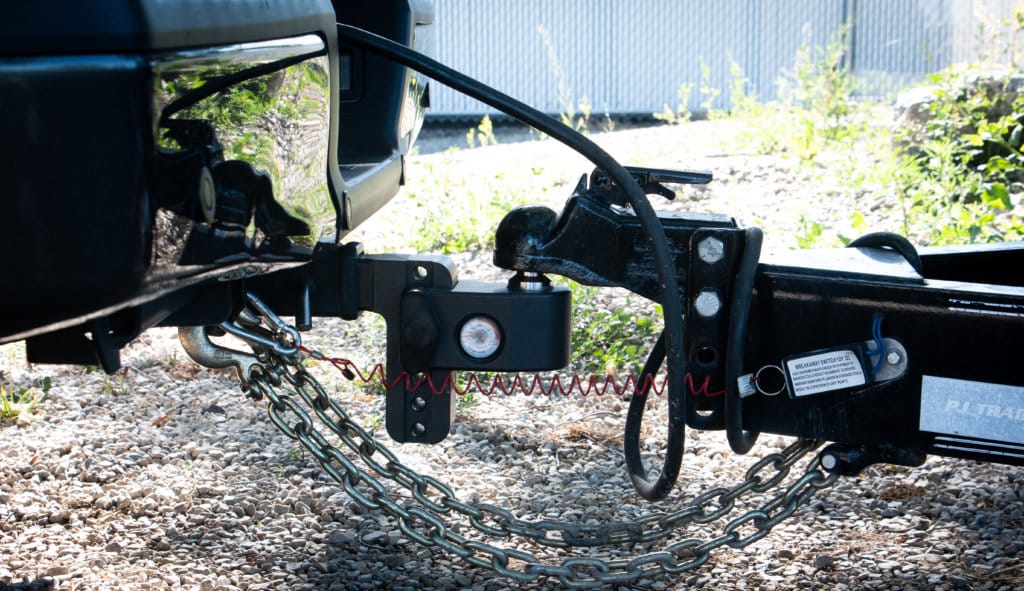 #4- WEIGHT AWARENESS: Many people are not aware of their weight ratings of not only their truck but their trailer as well. This includes things like curb weight, gross vehicle weight ratings (GVWR), gross combined weight ratings (GCWR), gross trailer weight (GTW), tongue weight, etc. The RV Safety & Education Foundation found that 57% of all RV’s on the road exceed one or more weight safety ratings. That means that half of all the trailers you see on the road are towing more than their truck/trailer is meant to handle! This can cause poor vehicle performance, steering, traction and braking difficulty or even loss of control. Just because you have a hitch that has a high weight rating doesn’t mean that your truck can tow that much. You can only tow as much as your lowest weight rated component.
#4- WEIGHT AWARENESS: Many people are not aware of their weight ratings of not only their truck but their trailer as well. This includes things like curb weight, gross vehicle weight ratings (GVWR), gross combined weight ratings (GCWR), gross trailer weight (GTW), tongue weight, etc. The RV Safety & Education Foundation found that 57% of all RV’s on the road exceed one or more weight safety ratings. That means that half of all the trailers you see on the road are towing more than their truck/trailer is meant to handle! This can cause poor vehicle performance, steering, traction and braking difficulty or even loss of control. Just because you have a hitch that has a high weight rating doesn’t mean that your truck can tow that much. You can only tow as much as your lowest weight rated component.
 #5- PROPER LOADING/PLACEMENT/SECURE: Not only do you have to keep your load within the appropriate weight ratings for your truck, you also need to make sure that you’re distributing it appropriately across the trailers axles and left/right sides of the trailer. A properly loaded and balanced trailer is not axle based but rather load distribution and tongue weight based. You should aim to keep your tongue weight between 10-15% of your GTW. Doing so will make for a much more enjoyable and safer tow. Once you have loaded everything properly, a secure attachment to the trailer is just as important.
I found an interesting statistic to help further explain why this fifth neglected point is so important. A 20 pound object falling from a truck traveling at only 55 MPH creates a whopping 1,000 pounds of force upon impact!!! Even something as small as 20 pounds can cause so much damage if it falls off your trailer! In this same article, I found a statistic from AAA that said within a 3 year span (2011-2014) more than 200,000 accidents were caused by unsecured items falling off of trucks/trailers. I am hoping that those statistics sort of put into perspective why it is so important to tie items down.
So with that being said, please make sure NOT to neglect these five important pre-tow checklist items prior to hitting the road and make sure you know the ins and out of trailer safety. And if you’ve already checked them, check them again! You can never be too safe when it comes to towing and doing these five things will help you get closer to reaching a Towing Peace of Mind on the road. After all, why be kinda safe when you can be Weigh Safe!
#5- PROPER LOADING/PLACEMENT/SECURE: Not only do you have to keep your load within the appropriate weight ratings for your truck, you also need to make sure that you’re distributing it appropriately across the trailers axles and left/right sides of the trailer. A properly loaded and balanced trailer is not axle based but rather load distribution and tongue weight based. You should aim to keep your tongue weight between 10-15% of your GTW. Doing so will make for a much more enjoyable and safer tow. Once you have loaded everything properly, a secure attachment to the trailer is just as important.
I found an interesting statistic to help further explain why this fifth neglected point is so important. A 20 pound object falling from a truck traveling at only 55 MPH creates a whopping 1,000 pounds of force upon impact!!! Even something as small as 20 pounds can cause so much damage if it falls off your trailer! In this same article, I found a statistic from AAA that said within a 3 year span (2011-2014) more than 200,000 accidents were caused by unsecured items falling off of trucks/trailers. I am hoping that those statistics sort of put into perspective why it is so important to tie items down.
So with that being said, please make sure NOT to neglect these five important pre-tow checklist items prior to hitting the road and make sure you know the ins and out of trailer safety. And if you’ve already checked them, check them again! You can never be too safe when it comes to towing and doing these five things will help you get closer to reaching a Towing Peace of Mind on the road. After all, why be kinda safe when you can be Weigh Safe!
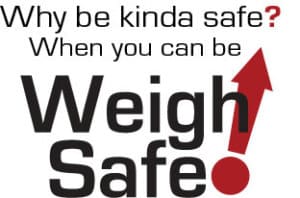
 With all that being said, many people are a bit rusty on their safe towing skills and neglect to check certain things that are vital to a safe tow. I wanted to gather some accident statistics that involve trailers but have found that that type of information is very difficult to come by and not well recorded, especially ones that are up to date.
One of the more recent stats that I found from the NHTSA reported that in 2016 nearly 50,000 trailer hitch accidents happen every year in the United States and since we are now in 2020, I’m sure that number has only risen. Here are some safety checklist items that people tend to neglect and therefore add to that trailer hitch accident statistic.
With all that being said, many people are a bit rusty on their safe towing skills and neglect to check certain things that are vital to a safe tow. I wanted to gather some accident statistics that involve trailers but have found that that type of information is very difficult to come by and not well recorded, especially ones that are up to date.
One of the more recent stats that I found from the NHTSA reported that in 2016 nearly 50,000 trailer hitch accidents happen every year in the United States and since we are now in 2020, I’m sure that number has only risen. Here are some safety checklist items that people tend to neglect and therefore add to that trailer hitch accident statistic.
Most Common Towing Mistakes
#1- USE OF THE CORRECT HITCH: First things first; make sure that you have the correct hitch for your towing system. Way too often, we either see people first hand on the road with a questionable use of a hitch or photos on the internet like this one… You should only tow your trailer in the intended manner that it was designed and manufactured for use. If it is a fifth wheel trailer, you should in no way try to convert it into a bumper tow trailer like the image above!!
Not only should you have the correct type of hitch, but you should make sure that it works for your tow vehicle. If you have a very large and lifted truck, you shouldn’t be towing with a standard hitch that makes the tongue of your trailer point up to the sky. You need a drop hitch that when attached, your trailer sits level. But you also don’t want too long of a drop hitch that if you have a vehicle that sits lower to the ground it’s going to scrape on the road or scrape going over speed bumps and whatnot.
You also need to make sure you have a hitch that matches the same size of receiver on your truck or that it has the appropriate reducer sleeves to get that appropriate and snug fit. For example, you do not want to use a 2” shank on a hitch in a 2.5” receiver with no reducer sleeve. This would NOT be safe and would have your trailer going all over the place! Overall, you need to find a hitch that will work specifically for your tow vehicle.
#2- CORRECT HITCH BALL SIZE: Once you have found the correct hitch for your tow vehicle and trailer, you have to make sure that you have the correct sized tow ball on your hitch. Just because your trailer coupler fits on your tow ball does NOT mean they are the same size and compatible. If the tow ball is smaller than the coupler, you will not be able to properly secure the coupler and the same goes for a tow ball that is larger than your coupler. Either way, the trailer could detach from your truck and cause an accident.
You should only tow your trailer in the intended manner that it was designed and manufactured for use. If it is a fifth wheel trailer, you should in no way try to convert it into a bumper tow trailer like the image above!!
Not only should you have the correct type of hitch, but you should make sure that it works for your tow vehicle. If you have a very large and lifted truck, you shouldn’t be towing with a standard hitch that makes the tongue of your trailer point up to the sky. You need a drop hitch that when attached, your trailer sits level. But you also don’t want too long of a drop hitch that if you have a vehicle that sits lower to the ground it’s going to scrape on the road or scrape going over speed bumps and whatnot.
You also need to make sure you have a hitch that matches the same size of receiver on your truck or that it has the appropriate reducer sleeves to get that appropriate and snug fit. For example, you do not want to use a 2” shank on a hitch in a 2.5” receiver with no reducer sleeve. This would NOT be safe and would have your trailer going all over the place! Overall, you need to find a hitch that will work specifically for your tow vehicle.
#2- CORRECT HITCH BALL SIZE: Once you have found the correct hitch for your tow vehicle and trailer, you have to make sure that you have the correct sized tow ball on your hitch. Just because your trailer coupler fits on your tow ball does NOT mean they are the same size and compatible. If the tow ball is smaller than the coupler, you will not be able to properly secure the coupler and the same goes for a tow ball that is larger than your coupler. Either way, the trailer could detach from your truck and cause an accident.
 #3- PROPER HITCH ATTACHMENT: Once you have the correct hitch and tow ball, you need to properly and securely attach the trailer to the truck. Check and double check that the trailer coupler is locked/secured and won’t be coming off during travel. Hook up your trailer lights, safety chains, trailer brakes and breakaway cable and double check that all are functioning and secured in place. See more information about a proper hitch attachment here.
#3- PROPER HITCH ATTACHMENT: Once you have the correct hitch and tow ball, you need to properly and securely attach the trailer to the truck. Check and double check that the trailer coupler is locked/secured and won’t be coming off during travel. Hook up your trailer lights, safety chains, trailer brakes and breakaway cable and double check that all are functioning and secured in place. See more information about a proper hitch attachment here.
 #4- WEIGHT AWARENESS: Many people are not aware of their weight ratings of not only their truck but their trailer as well. This includes things like curb weight, gross vehicle weight ratings (GVWR), gross combined weight ratings (GCWR), gross trailer weight (GTW), tongue weight, etc. The RV Safety & Education Foundation found that 57% of all RV’s on the road exceed one or more weight safety ratings. That means that half of all the trailers you see on the road are towing more than their truck/trailer is meant to handle! This can cause poor vehicle performance, steering, traction and braking difficulty or even loss of control. Just because you have a hitch that has a high weight rating doesn’t mean that your truck can tow that much. You can only tow as much as your lowest weight rated component.
#4- WEIGHT AWARENESS: Many people are not aware of their weight ratings of not only their truck but their trailer as well. This includes things like curb weight, gross vehicle weight ratings (GVWR), gross combined weight ratings (GCWR), gross trailer weight (GTW), tongue weight, etc. The RV Safety & Education Foundation found that 57% of all RV’s on the road exceed one or more weight safety ratings. That means that half of all the trailers you see on the road are towing more than their truck/trailer is meant to handle! This can cause poor vehicle performance, steering, traction and braking difficulty or even loss of control. Just because you have a hitch that has a high weight rating doesn’t mean that your truck can tow that much. You can only tow as much as your lowest weight rated component.
 #5- PROPER LOADING/PLACEMENT/SECURE: Not only do you have to keep your load within the appropriate weight ratings for your truck, you also need to make sure that you’re distributing it appropriately across the trailers axles and left/right sides of the trailer. A properly loaded and balanced trailer is not axle based but rather load distribution and tongue weight based. You should aim to keep your tongue weight between 10-15% of your GTW. Doing so will make for a much more enjoyable and safer tow. Once you have loaded everything properly, a secure attachment to the trailer is just as important.
I found an interesting statistic to help further explain why this fifth neglected point is so important. A 20 pound object falling from a truck traveling at only 55 MPH creates a whopping 1,000 pounds of force upon impact!!! Even something as small as 20 pounds can cause so much damage if it falls off your trailer! In this same article, I found a statistic from AAA that said within a 3 year span (2011-2014) more than 200,000 accidents were caused by unsecured items falling off of trucks/trailers. I am hoping that those statistics sort of put into perspective why it is so important to tie items down.
So with that being said, please make sure NOT to neglect these five important pre-tow checklist items prior to hitting the road and make sure you know the ins and out of trailer safety. And if you’ve already checked them, check them again! You can never be too safe when it comes to towing and doing these five things will help you get closer to reaching a Towing Peace of Mind on the road. After all, why be kinda safe when you can be Weigh Safe!
#5- PROPER LOADING/PLACEMENT/SECURE: Not only do you have to keep your load within the appropriate weight ratings for your truck, you also need to make sure that you’re distributing it appropriately across the trailers axles and left/right sides of the trailer. A properly loaded and balanced trailer is not axle based but rather load distribution and tongue weight based. You should aim to keep your tongue weight between 10-15% of your GTW. Doing so will make for a much more enjoyable and safer tow. Once you have loaded everything properly, a secure attachment to the trailer is just as important.
I found an interesting statistic to help further explain why this fifth neglected point is so important. A 20 pound object falling from a truck traveling at only 55 MPH creates a whopping 1,000 pounds of force upon impact!!! Even something as small as 20 pounds can cause so much damage if it falls off your trailer! In this same article, I found a statistic from AAA that said within a 3 year span (2011-2014) more than 200,000 accidents were caused by unsecured items falling off of trucks/trailers. I am hoping that those statistics sort of put into perspective why it is so important to tie items down.
So with that being said, please make sure NOT to neglect these five important pre-tow checklist items prior to hitting the road and make sure you know the ins and out of trailer safety. And if you’ve already checked them, check them again! You can never be too safe when it comes to towing and doing these five things will help you get closer to reaching a Towing Peace of Mind on the road. After all, why be kinda safe when you can be Weigh Safe!

